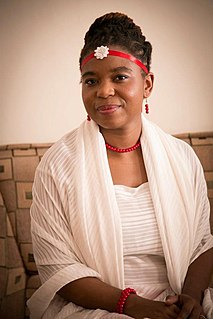A Quote by Arlen Specter
What I would ask the leaders to do is to better understand the American people. I would insist that the leaders have town meetings and meet the people and listen to them and find out what is on their minds.
Related Quotes
I'd make - before I'd elect somebody - I'd make him do town meetings and face the people and then I would insist that the person not run on a platform of no compromising. The meaningful thing that the leaders could do would be to be dedicated to a discussion across the isle, to vote their consciences and not to follow the strict party line. I think that would lead to sensible decisions.
Organization is not only directly linked to unity, but a natural development of that unity. Accordingly, the leaders' pursuit of that unity is also an attempt to organize the people, requiring witness to the fact that the struggle for liberation is a common task." "Leaders who do not act dialogically, but insist on imposing their decisions, do not organize the people--they manipulate them. They do not liberate, nor are they liberated: they oppress.
When you meet these outstanding leaders who have been through a programme that empowers them to take positive action, to make things better for people, for animals and for the environment - when you watch them interact and they start brainstorming, you realise you can relax, because they have got it right. They understand that there's more to this life than just money.
The problem, of course, was that people did not seem to understand the difference between right and wrong. They needed to be reminded about this, because if you left it to them to work out for themselves, they would never bother. They would just find out what was best for them, and then they would call that the right thing. That's how most people thought.
Friends of Bernard's [Leach] came to visit, and when we went to London, we were given introductions to people like Lucie Rie, Hans Coper, Richard Batram. All these people were, let's say, made available to us by a friendship with Leach. In addition there was a potter's group - what was it called? I think it was called the Cornish Potters Society, but I'm not sure of that. Anyway, they had meetings and we would go with Leach to these meetings and meet other potters, and they would have programs where they would discuss pottery and people would interchange ideas.
Of course, we have leaders in the African American community as well that we've all worked with. One of the great rewards of being an activist is that you get to meet all these wonderful people. And there are many unsung heroes. There are so many out there that are good people that are working hard.































